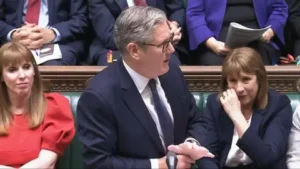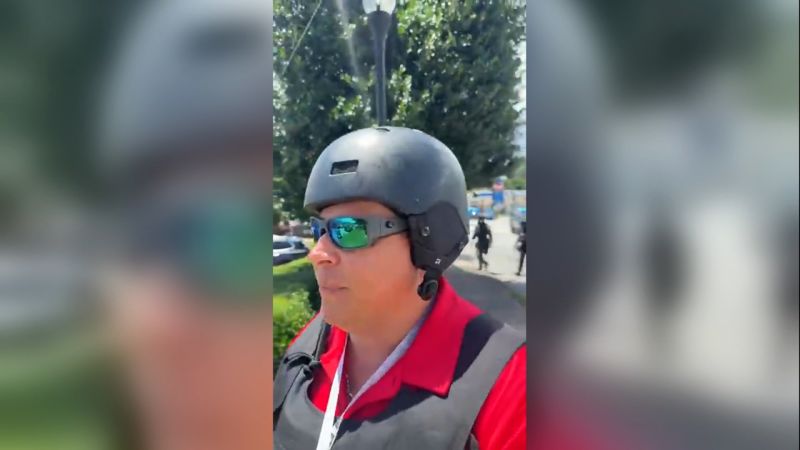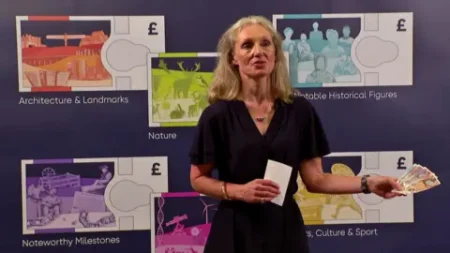On a pivotal note in the intersection of journalism and immigration, a Georgia immigration judge has granted bail for Mario Guevara, a Spanish-language journalist known for his live-streamed coverage of immigration enforcement events. This update comes amid his ongoing immigration proceedings, as confirmed by a relative to CNN. Guevara’s situation highlights the challenges faced by immigrant journalists, especially those reporting on sensitive issues surrounding law enforcement and immigration policies.
Mario Guevara, who emigrated from El Salvador to the United States in 2004, has recently spent nearly two weeks in the custody of Immigration and Customs Enforcement (ICE). His detention drew attention when the U.S. Press Freedom Tracker identified him as the only journalist currently held in detention in the United States. This status raises questions about press freedom and the treatment of journalists in the context of immigration enforcement.
The troubling circumstances surrounding Guevara’s arrest stemmed from his reporting activities on June 14, when he was covering a protest labeled “No Kings” near Atlanta. He was charged with a series of offenses, including improper entrance onto a roadway, obstruction of law enforcement, and unlawful assembly. Notably, during the incident, Guevara was wearing a vest clearly identifying him as press, and video footage from the event captured the circumstances of his arrest, fueling discussions about the rights of journalists in the field.
Despite the subsequent dismissal of the charges against him, ICE officials insisted on keeping Guevara detained based on his immigration status, which has become a contentious issue. Given the complexities surrounding immigration and work permissions, Guevara’s legal team clarified that he has authorization to work in the United States, although he is not a permanent resident—a detail that complicates his situation but does not negate his rights as a journalist.
Guevara has garnered significant attention in Georgia for his unique approach to journalism, using social media as a platform to document immigration enforcement and highlight community experiences. His arrest, occurring while he was actively engaging in reporting, does not merely signal a personal ordeal but signifies a broader concern for the freedom of the press, particularly for immigrant journalists navigating a precarious legal landscape.
The Committee to Protect Journalists (CPJ) has actively supported Guevara’s case. They sent a representative to the recent hearing, and their spokesperson expressed hopes that the judge’s ruling would allow him to rejoin his family and resume his vital work in journalism as legal proceedings unfold. This perspective was echoed by Guevara’s wife, Miriam Sáenz de Guevara, who expressed relief and gratitude towards the legal team for their efforts.
Adding to the complexities of the ongoing situation, Katherine Jacobsen from CPJ underscored the mixed emotions stemming from Guevara’s release. While the bond grant was viewed as a positive step, the implications of the prosecution’s argument—claiming that Guevara’s journalistic endeavors posed a risk to the community—were alarming. Jacobsen articulated that this situation sends a disconcerting message to the media, exemplifying a chilling effect on journalistic freedom.
The narrative surrounding Mario Guevara is emblematic of the broader issues related to immigration, free speech, and the rights of journalists in America. As this case unfolds, it serves as a crucial reminder of the struggles faced by those who strive to report the truth amidst legal complexities and societal challenges. The intersection of immigration laws and press freedom continues to provoke significant dialogue regarding the essence of democracy and the role of journalists, particularly those from underrepresented communities, in safeguarding liberties and informing the public. The outcome of Guevara’s situation will inevitably contribute to ongoing discussions about the critical importance of protecting journalists’ rights, ensuring they can operate freely without fear of persecution for their work.











